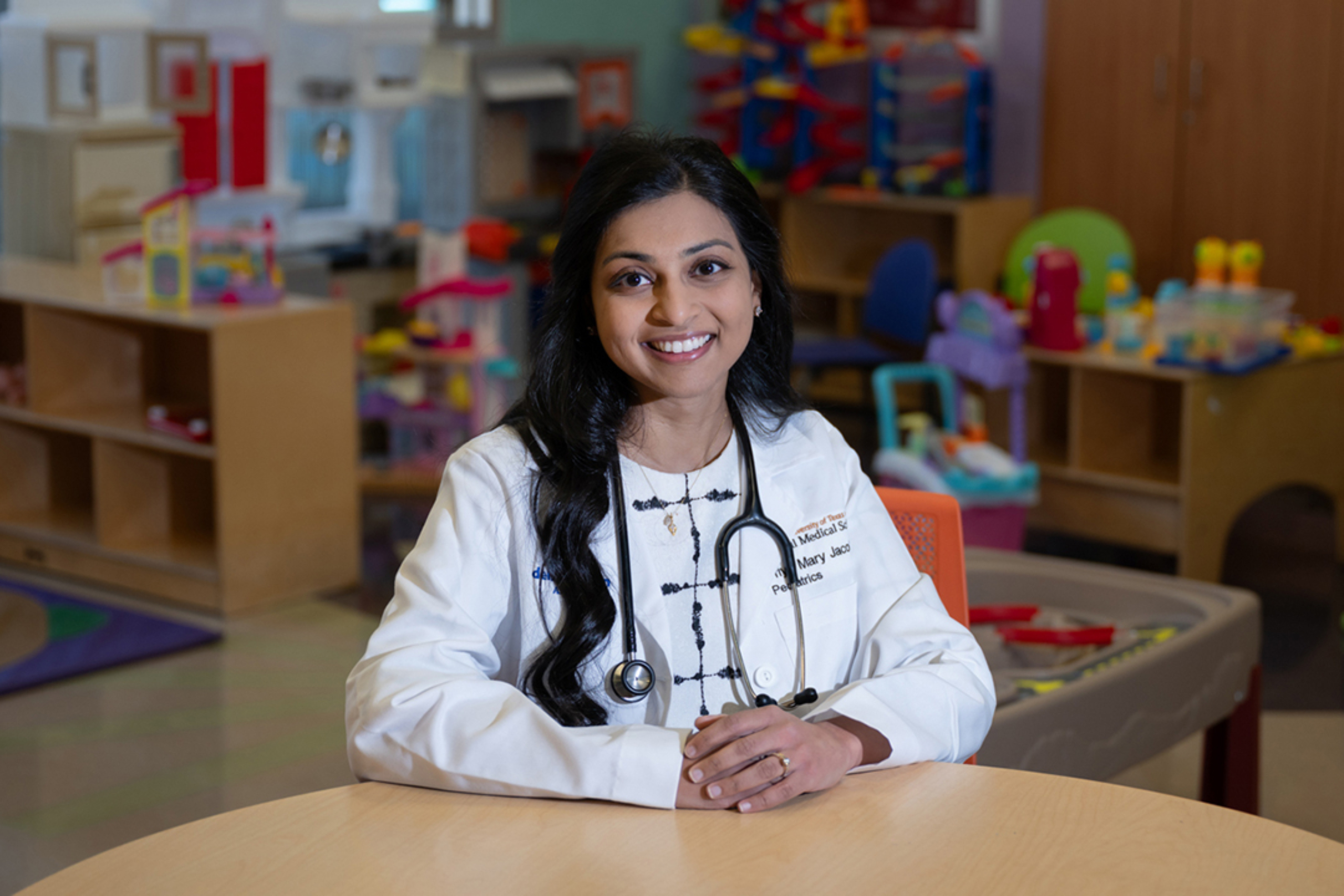One of the reasons Priya Jacob, M.D., MPH, a pediatric resident, chose to pursue Dell Medical School for residency training was because of its commitment to preparing resident and fellow physicians to navigate and improve ever-evolving health care systems.

Now, at Dell Children’s Medical Center, she’s in the midst of moving the needle on the quality of patient care while also reducing the cost burden on families and health care systems through efforts to standardize care for children with constipation.
Jacob, whose experiences in programs like the Archer Fellowship and Albert Schweitzer Fellowship have prepared her for a career serving others through both health care and policy, is carrying out the project as part of the honors program within Dell Med’s signature graduate medical education curriculum, Advancing Care Transformation — an opportunity for physicians in training to tackle systemic challenges in health before even graduating.
Walk us through your Distinction in Care Transformation project.
Nationally, the cost to care for children with constipation is about $3.9 billion per year, and families of children with constipation spend almost three times more in health care costs than families of children without constipation. I set out to create a standardized plan to manage pediatric patients experiencing constipation in the emergency department or when admitted for constipation bowel cleanout, which can be associated with increased medical costs.
I began to collaborate with teams across Dell Children’s, including the pediatric emergency department, pharmacy, hospital medicine team, bowel management program, gastroenterology and nursing to conduct an initial needs assessment. The initial findings showed about 70% of patients diagnosed with primary functional constipation in the emergency department did not receive standard of care management. As a result, our team developed an evidence-based guideline with resources for families made available in Spanish and English.
This project has allowed me to interface with leaders in the hospital, understand barriers to change and develop important communication skills. While we are currently in the “plan-do-study-act” portion of the project, my hope is that this study will not only give providers the tools to practice standard of care medicine in a busy hospital setting but also reduce the cost burden to the system. However, my ultimate goal is that children and families who struggle with constipation get heard, educated and supported enough to manage their constipation so that quality of life is not diminished.
What particular memory or experience has affected your outlook on your career?
On March 23, 2010, the Patient Protection and Affordable Care Act, or ACA, became law. Six years later, I was an intern at the White House for the Domestic Policy Council health team under the direction of Jeanne Lambrew, Ph.D. I saved the email she sent to our team on the anniversary of the ACA: “I wanted to say a special thank you, not just because of the quality of the work, but because it reminds me of all the effort that has been put in over the last six years to get us to this point.” And the work is still being done.
While my main focus now is not health policy, I often think about my time in Washington. Change takes time, commitment, leadership, vision, focus, resiliency, sacrifice and hard work. I want to approach my life and work with this kind of dedication to any project, patient or person I am able to invest in. The changes I bring might be small, and I may not even get to see the effect of the work I do in the time I am here, but I hope to always view it as a privilege that I get to help people. For that, to me, the effort will always be worth it.
During the hard moments trying to influence systems-level change, what keeps you motivated?
One thing I am constantly inspired by in working on this project is the reality of the saying “it takes a village.” The diversity of experiences, knowledge and skill of each person I’ve gotten to work with has made my project possible. I have found that a multidisciplinary approach makes a richer product that is better received, and I learn so much through the process. I truly believe we work better when we work together, making deeper relationships with more meaningful outcomes along the way.
Graduate medical education, or GME, refers to the period of education in a particular specialty or subspecialty following completion of medical school. This continuation of training through residency and fellowship programs provides the clinical and educational experience needed for physicians to achieve autonomy, deliver high-quality patient care, and prepare for challenges in an evolving health care landscape.
Dell Med serves as the academic home and Ascension Seton as the clinical home for 494 resident and fellow physicians within more than 45 residency and fellowship programs ranging from family medicine and neurology to pediatric emergency medicine and cardiovascular disease.